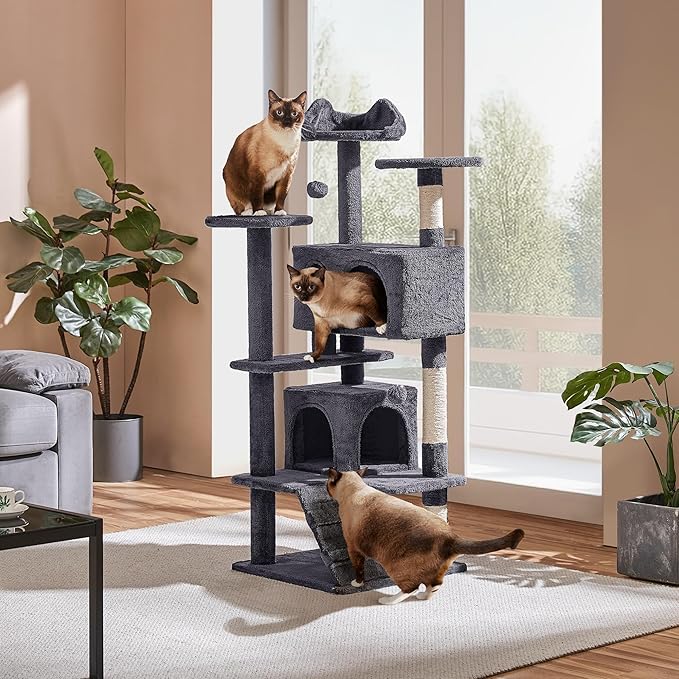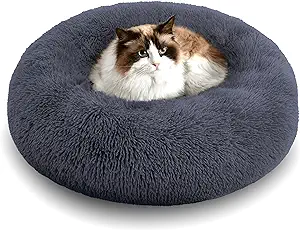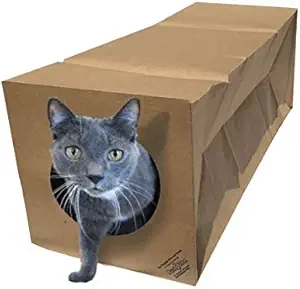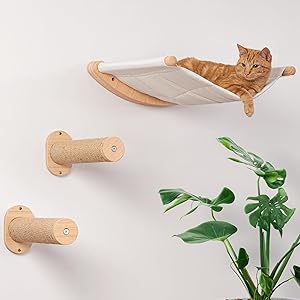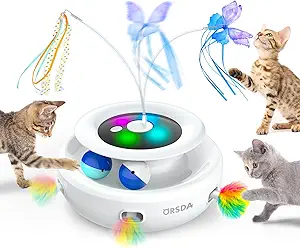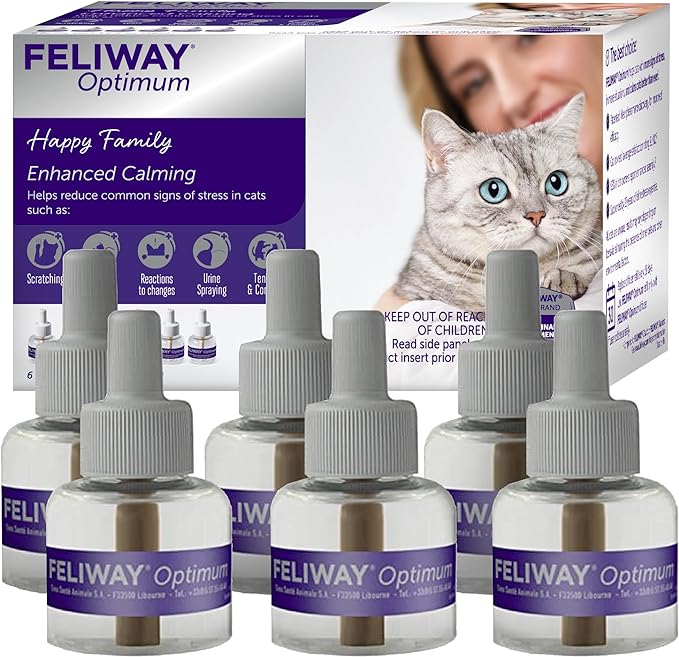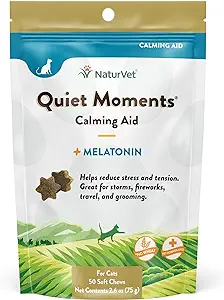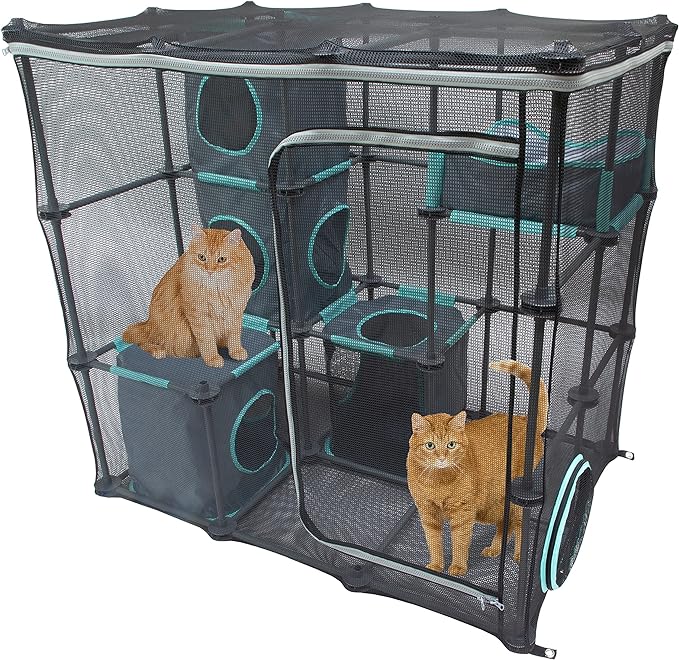This “10 Proven Techniques for Keeping Your Cat Calm and Happy” post may contain affiliate links, which means I’ll receive a commission if you purchase through my link, at NO EXTRA COST TO YOU
10 Proven Techniques for Keeping Your Cat Calm and Happy
Cats are known for their independent and sometimes aloof nature, but they can also experience stress and anxiety just like any other pet. Whether it’s due to a change in their environment, a visit to the vet, or the introduction of a new pet, it’s important to know how to keep your cat calm. In this detailed guide, we’ll explore 10 effective ways to help your feline friend stay relaxed and content.
1. Create a Safe and Comfortable Environment
Cats are territorial animals, and they thrive in environments where they feel safe and secure. Here’s how you can create a calming space for your cat:
- Designate a Quiet Area: Set aside a quiet, low-traffic area in your home where your cat can retreat when they feel stressed. This could be a cozy corner with a comfortable bed & cat tree or a room with minimal noise and disturbances.
- Use Soft Bedding: Provide soft, plush bedding where your cat can rest. The texture and warmth of the bedding can help soothe your cat and make them feel more secure.
- Reduce Loud Noises: Minimize loud noises in your home, such as loud music, television, or household appliances, as these can be stressful for your cat.
2. Provide Plenty of Hiding Spots
Cats often seek out small, enclosed spaces when they feel anxious. Providing plenty of hiding spots can help them feel more secure:
- Use Cat Tunnels and Boxes: Place cat tunnels, boxes, or covered beds around your home. These offer your cat a place to hide and feel safe when they’re feeling overwhelmed.
- Create Elevated Spaces: Cats feel safer when they can observe their surroundings from a higher vantage point. Install cat shelves or provide access to elevated areas like the top of a bookshelf.
3. Engage in Regular Playtime
Regular playtime is essential for a cat’s mental and physical well-being. Engaging in interactive play can help reduce stress and anxiety:
- Interactive Toys: Use toys like feather wands, laser pointers, or toy mice to engage your cat in play. These toys mimic the natural hunting behavior of cats, providing them with mental stimulation and an outlet for their energy.
- Scheduled Playtime: Set aside time each day for interactive play. Consistent playtime can help establish a routine, which can be calming for your cat.
4. Use Calming Products
There are several products available that can help calm your cat in stressful situations:
- Feline Pheromone Diffusers: Pheromone diffusers, such as Feliway, release synthetic versions of the calming pheromones that cats naturally produce. These can help create a calming environment, especially during stressful times like moving or introducing a new pet.
- Calming Treats: There are treats specifically formulated with calming ingredients like L-theanine, chamomile, and tryptophan. These can help reduce anxiety in situations like vet visits or thunderstorms.
- Comfortable Apparel: Consider using calming wraps or shirts designed to apply gentle pressure, similar to swaddling, which can help reduce anxiety in cats.
5. Maintain a Consistent Routine
Cats are creatures of habit, and changes in their routine can be stressful. Keeping a consistent daily routine can help your cat feel more secure:
- Regular Feeding Times: Feed your cat at the same times each day to provide a sense of predictability. This can help reduce anxiety, especially in multi-pet households.
- Consistent Interaction: Spend time interacting with your cat at regular intervals throughout the day. Whether it’s grooming, playing, or simply sitting with them, consistent interaction can be reassuring for your cat.
6. Provide Mental Stimulation
Mental stimulation is key to keeping your cat calm and happy. Boredom can lead to anxiety, so it’s important to provide activities that engage your cat’s mind:
- Puzzle Feeders: Use puzzle feeders or treat-dispensing toys to challenge your cat mentally. These toys can help reduce boredom and provide a positive distraction.
- Window Perches: Install a window perch where your cat can watch birds, squirrels, and other outdoor activities. This visual stimulation can be both entertaining and calming for your cat.
7. Ensure Adequate Exercise
Physical activity is important for reducing stress and preventing behavioral issues. Regular exercise can help your cat burn off excess energy and remain calm:
- Interactive Play: Engage your cat in activities that encourage them to run, jump, and climb. This could include chasing a feather toy or climbing a cat tree.
- Outdoor Enclosures: If you have the space, consider setting up a catio or a safe outdoor enclosure where your cat can explore and exercise in a controlled environment.
8. Provide a Nutritious Diet
A balanced diet plays a significant role in your cat’s overall health and well-being, including their mental health:
- High-Quality Cat Food: Choose a high-quality cat food that meets your cat’s nutritional needs. A well-balanced diet can help prevent health issues that could contribute to stress.
- Hydration: Ensure your cat has access to fresh water at all times. Dehydration can lead to health issues, which in turn can cause stress.
9. Use Relaxing Scents
Certain scents can have a calming effect on cats. Incorporating these scents into your home can help create a more relaxing environment:
- Lavender and Chamomile: These scents are known for their calming properties. Use them in moderation, as some cats may be sensitive to strong odors.
- Catnip: While catnip can be stimulating for some cats, it can have a calming effect on others. Experiment to see how your cat responds, and use it as a calming tool if it works for your cat.
10. Consult with a Veterinarian
If your cat’s anxiety is severe or persistent, it may be necessary to consult with a veterinarian:
- Behavioral Therapy: A veterinarian can recommend behavioral therapy or refer you to a veterinary behaviorist who can help address your cat’s anxiety.
- Medication: In some cases, medication may be necessary to help manage your cat’s anxiety. Your vet can prescribe the appropriate medication and dosage for your cat’s specific needs.
Conclusion
Keeping your cat calm and stress-free is essential for their overall well-being. By creating a safe environment, providing mental and physical stimulation, and using calming products, you can help your cat feel more secure and relaxed. Remember, every cat is unique, so it’s important to observe your cat’s behavior and adjust your approach accordingly. With patience and care, you can help your feline friend live a happy and calm life.

Cat food choices can seem overwhelming, with opinions everywhere about the “right” diet for felines. Unfortunately, many myths can mislead cat owners, causing confusion and even potential harm. To help clarify, let’s dive into 10 common cat food myths, break them down, and provide essential insights for feeding your cat a balanced, healthy diet.


